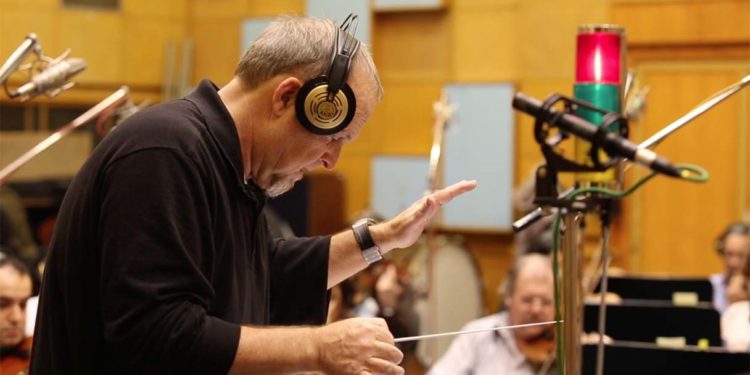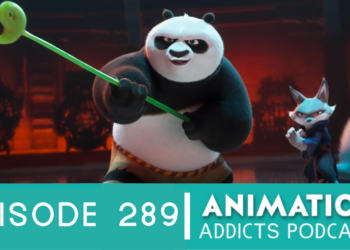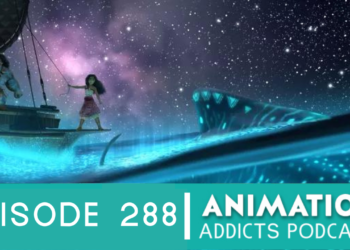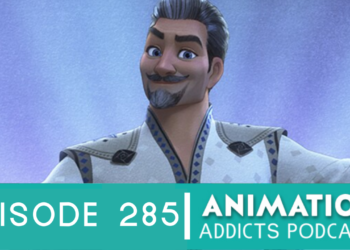If you are a Star Wars fan you are probably glued to the new season of Clone Wars that just debuted on Disney Plus. Rotoscopers writer Rachel Wagner got the great opportunity to interview the composer for the show Kevin Kiner. In the interview we learn about how his career began, what it is like to write music for Star Wars and what his experience was like writing for a new season of the beloved show.
Hi, Kevin. Thank you so much for coming and talking with us at Rotoscopers. I know everybody will be really excited to hear about your career and what you do. Would you mind introducing yourself to our readers?
Kevin Kiner: Hi, everybody. I’m Kevin Kiner the composer for Clone Wars. I’ve been doing it for about twelve or thirteen years now.
Great. So how did you end up becoming a composer?
KK- Oh, that’s a bit of a long story. Well, I started as a guitar player and then I started doing arrangements for horn bands way back in the 70s and early 80s. And that kind of morphed into becoming a music director for various acts. I was on the road and I would continue to do arrangements for those acts. Some pretty good acts like The Sophisticates and we would go out for maybe six months and do kind of Vegas style showrooms, supper clubs. And it would have a small orchestra: sometimes violins, sometimes not, but always horns and a rhythm section. From arranging for these acts, it’s a totally natural step to me to composing, because if there’s not a string part on a piece on a tune that you’re working on, then you have to kind of make it up. And that’s really composing.
So, a friend of mine had a job at a television production house. It was called Alan Landsburg Productions, and he found out they were looking for a theme for a new television show they were doing. And so he and I actually co-wrote a theme, and unsolicitedly put a cassette tape on the producer’s desk. Then we said, “hey, here’s your theme.” And he liked it! I’m still actually in touch with that guy.
I did a lot of shows for him and a lot of people from that first show went on to get their own either movies or shows or different things and just branched out from there.
Wow, that’s really cool. So I’m curious, what is the process like creating a composition for film versus for a series? I know you’ve done some of both and obviously a series is shorter, but are there any other differences?
KK- In many ways it’s not different. I would say at least 80% is very much the same. Where they diverge a bit is every film you are creating a new sound, a new template that is going to be the sound of this film. So, when I start on a new series that’s exactly what I’m doing for the first few episodes. A film is just a self-contained entity and then you don’t go on writing in that style you’ve created, whereas a series the style may morph. It may progress and it will evolve certainly if you are a good composer. In Clone Wars it’s evolved over the years.I’ve written over 100 hours of Star Wars music! I don’t think anyone on earth has done that. It’s a great privilege but it’s also a challenge to not get stale. You don’t want to be simply regurgitating things and phoning it in. Star Wars is a really important part of my life and it’s something I respect immensely. So I am very careful not to let the quality slide or my ideas get stale.
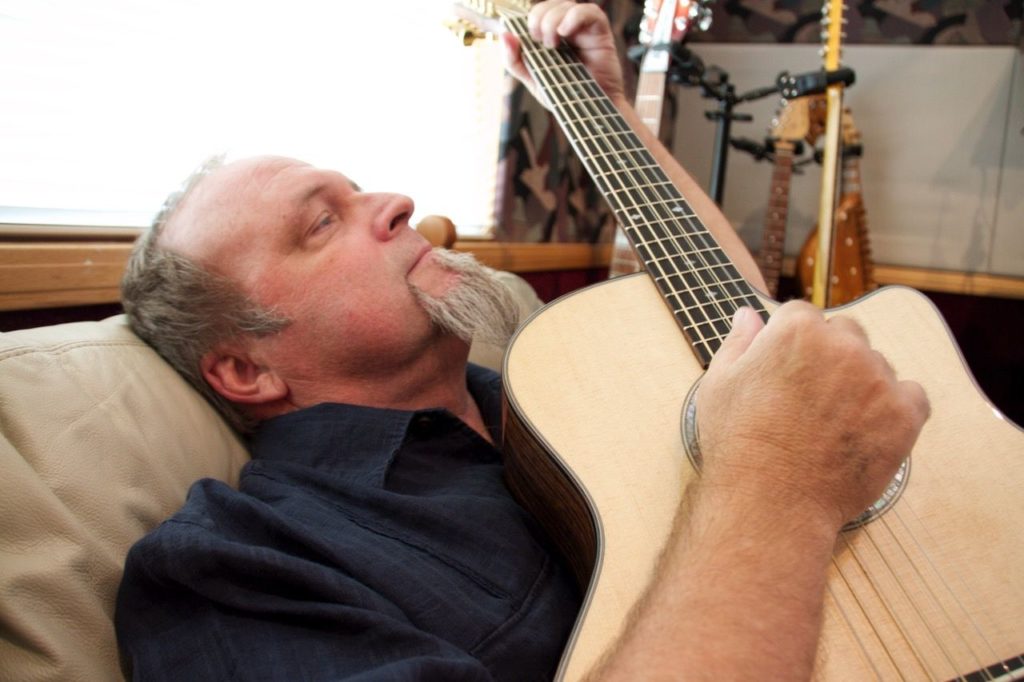
So how much time do you typically have to write the music for an episode?
KK- I probably have about two weeks, sometimes more. These days with streaming everything has changed. If anything, I get more time with streaming, but I’m also doing more projects. So even though I may have 4 weeks to do a Clone Wars, I also have a Doom Patrol score I’m working on right now. I’ve got to allocate a couple of those weeks there, so two weeks is a good amount of time, a comfortable amount of time. That said, Star Wars is the most difficult music I’ve ever written.
There was a great interview with John Williams recently, with him talking about how dense the music was. Of course, if anybody has mastered this kind of composition that Star Wars is famous for, it’s John Williams, but he was talking about how hard it was. It’s hard in the nature that you’re writing classical music. And some of these guys like Stravinsky or whoever you want to talk about: they would take a year to write a concerto or symphony or even smaller pieces. I don’t know how long John had to do the last one, but he gets a couple of months or something like that. It’s very complicated music, and it’s time consuming and creatively draining. It saps you, and you’re pretty tired at the end of the day.
So how much of John Williams’ beats do you include in your scores? How much does that influence your music for the show?
KK- So there are 2 aspects of that. The first aspect is if we’re going to use one of his themes in a certain part of an episode, in which case I try to stay true to what he did. I certainly don’t change his melodies. So that’s an aspect of it. Say if there’s a moment when we’re going to use the Force Theme (which is probably the best and most iconic part of the Star Wars themes or the Imperial March). If the Force Theme is being used, it’s an important moment, the show will decide to use that. So that’s one aspect of using his beats, and it’s not that often we use it. Because if you use that too much, it’s going to lose its impact.
The other aspect is just in my style in general. I tell everyone that I studied John Williams for years and years. When I do clinics or when I do Comic-Con panels, I’ll often bring an old score I have of Star Wars Episode 4 published in the late 70s. I probably picked it up in the early 80s. And it’s all marked up like you would mark up a textbook or some mark up their Bibles. I think The Bible is a more apt comparison for me because it really is the authoritative source for Star Wars music. When you study that for a long period of time, at the best, it becomes a little bit of your language, of your palate, of the way you express yourself as a composer, especially if I’m working in Star Wars. And knowing all that makes it easy. So, there’s always a bit of John Williams style in each episode of Clone Wars.
Now we veered away from that far for a long period of time during an episode where we’ll do world music. Then it’s all percussion or even guitars. I’m a guitarist, and early on I used guitars as part of my music. I even used it when I auditioned for Clone Wars! So that has nothing to do with John’s style, but we always will come back to it even if we don’t use his themes. It’s always something that you want to have at least a taste of it.
So do you work with the showrunners or with the other producers or who is it?KK- Yeah. It’s primarily with Dave Filoni. Over the years there have been different people involved. Early on in Rebels, there were some really cool creative voices that were part of the musical conversation as well, but I would say Dave Filoni is 90-95% of the creative back-and-forth. I’ll also watch an episode before there’s any music on it with Dave, and we have a pretty good shorthand together. He and I think quite a lot alike.
I loved what he did with Rebels. I loved that show because it was new characters (for the most part) and you could really dive into and learn about them. I was curious, do you try to have different themes for different characters within the show?
KK- Certainly, we had Sabine’s theme, Ezra’s theme, Kanan’s theme, Thrawn’s theme (which was a fan favorite) in Rebels, and Clone Wars as well. That’s a big part of the themes I’ve written. Probably the most famous is Ahsoka’s theme that I wrote very early on when I was working with George Lucas in the first episodes.
By the way, I also love Rebels. I loved the characters. I thought they were really a nice, fresh take on Star Wars characters. They had depth to them, and they took a nice journey where we got to see them grow and go through tragedy and triumph and all kinds of things. They were just fantastic characters.
You’ve done scores for video games for Lucasfilm, and I was just curious if that’s a different experience?
KK- With video games typically you don’t score anything to picture. You do the cut scenes, but that’s maybe 10% of what is written for the game. And the rest is you write a storyline and you’re given direction of what’s happening: What kind of moods, what kind of hits, what kind of beats are gonna be taken? Where do you need to make changes and stuff like that? But it’s much more in your imagination. It’s more like writing a piece of music just for music’s sake in a way. It’s a cool experience writing for video games. I like to do as many different projects as I can.
I’ve been doing this for like 37 years, and again, I always guard against getting stale because I think it’s a never-ending battle. Anybody who’s been doing this as long as I have, or as long as John Williams has been doing it, that’s something that you have to fight. And I fight it really hard. And I feel like I succeeded. I don’t feel stale. I get excited every day when I’m writing Star Wars music.
That’s great. Well, it must have been a great experience to go back to Clone Wars? I know it’s been 5 years since the show was last on the air
KK- Yeah. One of the things that happened was, during those five years, a lot of the world changed. Animation changed. Computer technology changed for the better. I think you’ll see in season 7. The look is just fantastic! And musically I started doing more electronica. I’ve done it before I did Clone Wars, because I wrote CSI Miami for 10 years and that was all electronic-based as well. But I really got into a new sort of electronica with a couple of shows for Warner Brothers – Doom Patrol and Titans – and those are live action comic-based shows. And the score for those are heavy, electronic music. Most of the time, no orchestra at all. And I think there’s some influences in season 7 of Clone Wars.
I’m really excited about that, and it’s a cool element. I think season 7 is in many ways what everybody wanted Clone Wars to be. Everybody who worked on it seems to feel that way. The look is the best of any season. The stories are fabulous, and the music is cutting edge for this day and time. So it’s cool to come back to something and be able to make it shine that way.
We’’re excited for sure. Well, the last question I have for you is, I’m sure it’s still a thrill to work at Lucasfilm, but do you remember the very first time you heard your music with Star Wars? That must’ve been a surreal moment for you.
KK- It’s hard to say the very first time I heard it because I’d been working on it so much I’d been hearing it over and over again but there’s many memories early on, especially working with Dave Filoni and George Lucas. I had the privilege of being one of the few people who was kind of taught by the Jedi Master and Dave as well. I really cherish that. He was a joy to work with and for.
He also had some really cool takes on things and a really cool attitude about things. I keep mentioning not being stale, and George was huge on that. Even to the point where he would want to do something crazy just to see if it would work. He is really big on that! He loves throwing stuff up against the wall to see what will stick. I wasn’t afraid if it was a bad idea. He’s just always trying new things.
I tell everybody, the first Star Wars script he would share with his friends like Spielberg and DePalma and everyone up at his cabin – at one point half the script was in Japanese. And he was trying to be different. He’d gotten into Kurosawa and stuff, but he knew enough to finally pull back from that because it wasn’t right for that film. It’s a great example of the kind of challenges he would give himself. He wanted to try to do something nobody had ever done before.
Yeah. Because music has always been such a key element for Star Wars and Star Wars success. I just imagine what it must have been like to be George Lucas and to hear those themes and that music for the first time. It must have been amazing! Every once in a while, it must give you goosebumps to know you get to work on Star Wars! I’m sure after a while, you do have to make sure that you aren’t just going through the motions – as with any job. But like I said I really was impressed with Rebels!
I’m excited to see this new season of Clone Wars. Thanks so much for coming and talking with us. I really appreciate it.
KK- I appreciate it as well. One of the things I get out of these interviews is it makes me look back and take stock. It’s good for perspective because you guys have that point of view of how amazing it is to work on Star Wars, and it’s great to be reminded of that.
Thank you again for taking the time to talk with us. And congratulations on the new season.
KK- Thanks, Rachel.
What do you think about the new season of Clone Wars coming back and what is your favorite part of the music of Star Wars? Let us know in the comments section
Edited by Kajsa Rain Forden


